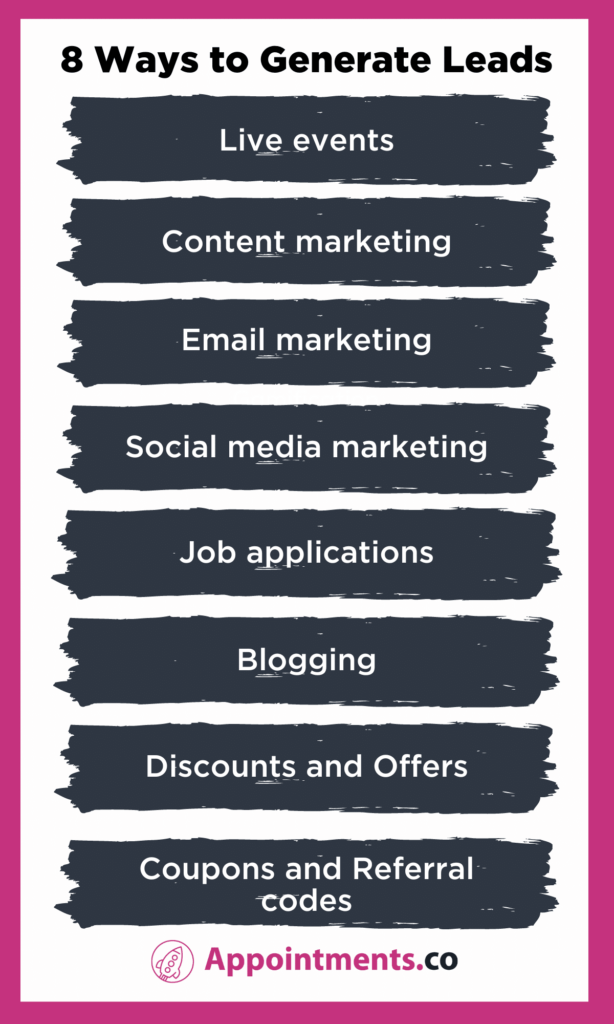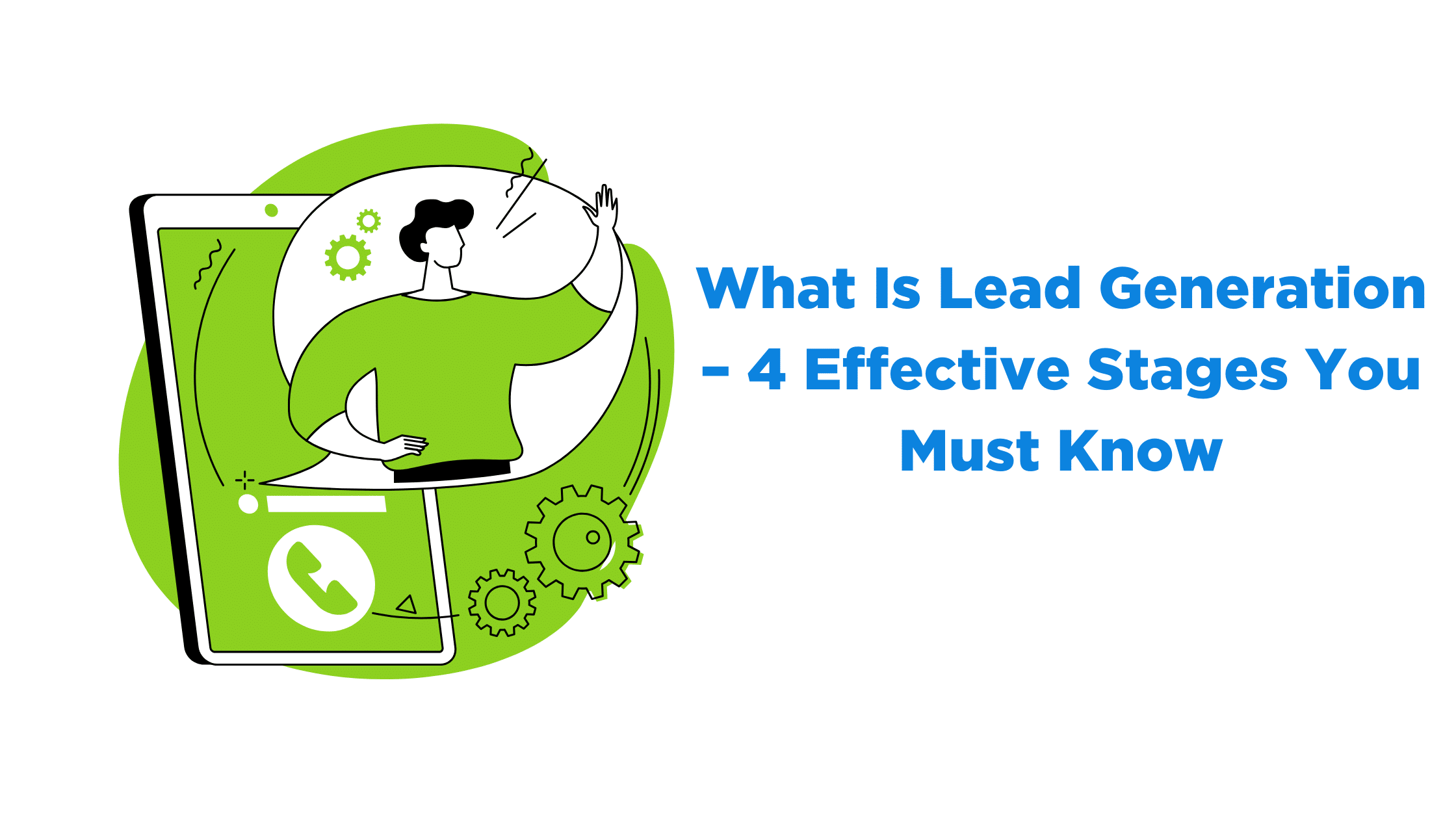Are you interested in lead generation? Wondering what is lead generation, and what essential things you should know when it comes to lead generation? Are you interested in learning more about the various stages of the lead generation process? If so, you have come to the right place.
In this article, you will learn more about what is lead generation, various types of leads and lead generation, and the various stages of the lead generation process.
What Is Lead Generation?
Lead generation refers to the process of attracting leads or prospects to your business, and helps to nurture them to increase their interest towards your business. The end goal of lead generation is to increase the conversion rate from lead or prospects to buyers or clients.
Lead generation plays a vital role in helping your target audience learn about your business, and acquire quality leads who are more likely to become your client or buyer at the end of the process. Some of the ways to generate leads are as follows:

- Live events
- Content marketing
- Email marketing
- Social media marketing
- Job applications
- Blogging
- Discounts and Offers
- Coupons and Referral codes
Types of Leads
Lead refers to an individual, or company, who shows interest in your service or your product. The company, or individual, goes through various stages to become leads. Not all leads are created or qualified the same. There are different types of leads based on their current stage, and how they are qualified.
Here are some of the different types of leads.
- Marketing Qualified Lead (MQL)
- Product Qualified Lead (PQL)
- Sales Qualified Lead (SQL)
- Service Qualified Lead
Marketing Qualified Leads (MQL):
Marketing Qualified Leads (MQL) are contacts who engage the efforts made by your marketing team. MQL leads are not ready to receive a sales call.
Product Qualified Leads (PQL):
Product Qualified Leads (PQL) are contacts who have experience using your service or product, and have taken efforts to show interest in becoming your client or buyer. Generally, you can come across PQLs in businesses that offer a free trial, or a limited or free version of their service or product for a specific duration.
Sales Qualified Leads (SQL):
Sales Qualified Leads (SQL) are contacts who show interest, and have taken actions that indicate their interest in becoming the business’ client or buyer.
Service Qualified Leads:
Service Qualified Leads are clients, or contacts, who have shown interest in purchasing your service or product to the sales team.
Types of Lead Generation
There are 2 types of lead generation. Namely:
- Inbound lead generation
- Outbound lead generation
Inbound Lead Generation:
Inbound lead generation refers to the marketing strategy that involves attracting leads or prospects to your brand. Inbound lead generation is more permissive, the lead initiates the conversation and gives permission to send them marketing material.
Outbound Lead Generation:
Outbound lead generation refers to the marketing strategy in which messages are sent out to the target audience, regardless of whether they have expressed interest or asked for it.
4 Stages of the Lead Generation Process
Now that you know the types of leads and the various types of lead generation, let’s now discuss the 4 stages of the lead generation process.
- Lead awareness
- Lead education
- Lead sampling
- Lead conversion
Let’s dive into the details.
LEAD AWARENESS
This stage of lead generation is all about how leads become aware of businesses, products, or services. In this stage of lead awareness, the essential activities includes:
- Content creation
- Networking
- Advertising online
- Public relations
You can make use of some of the core marketing strategies to create awareness about your business, and what you offer to your target audience. You can create awareness of your business by having referrals and optimizing for search engine results to gain exposure.
LEAD EDUCATION
The stage next to lead awareness is lead education. Once you have created an awareness about your service or product among your target audience, it is essential to help leads build trust for your services, products, suggestions, expertise, and solutions.
You can educate your audience about your product or service by being consistent with sending newsletter, conducting seminars, or events that allow you to showcase your experience, knowledge, expertise, and resources.
LEAD SAMPLING
Once the leads know of your brand’s existence, and the kind of product or service you offer, the next stage is lead sampling. Your potential customers may want to have a sample of your product, service, or your expertise.
Offering a small sample of what you offer is the easiest way to help leads progress in the lead to client conversion. You can consider offering audits, free demos, free trials, samples, and assessments as this can help earn the trust of the lead.
LEAD CONVERSION
The last and final stage of the lead generation process is lead conversion. Lead conversion is also known as selling by most businesses. At this stage, you as a business must help your prospect see how your product or service can help them achieve their desired results. You can demonstrate your product’s or service’s potential, and forecast the results in your process.
Frequently Asked Questions (FAQs)
1. What is an example of lead generation?
Some examples of lead generation are as follows:
– Live events
– Content marketing
– Email marketing
– Social media marketing
– Job applications
– Blogging
– Discounts and Offers
– Coupons and Referral codes
2. What is the purpose of lead generation?
The main purpose of lead generation is to generate quality leads who are interested in purchasing your products or services, and becoming your clients or buyers at the end of the process. It also helps prospects progress through various stages of the sales funnel, and sales pipeline to get them ready to purchase your service or product.
3. What are the 3 approaches of lead generation?
The 3 main approaches of lead generation are as follows:
– Content marketing
– Social media marketing
– Email marketing
Wrapping Up
If you have been looking for what is lead generation, types of leads and lead generation, or the various stages of the lead generation process, this article should have helped you gain a better understanding. Make sure to generate and qualify quality leads, so you can take your business to another level.
If you have been looking for services that can help you boost your sales opportunities, and take your business to the next level, make sure to reach out to us to learn more about our services.
Related Reads
Lead Generation for SaaS – 5 Essential Things You Need to Know
How to Choose the Best Lead Generation Company
How to Build an Effective Lead Generation Funnel: A Comprehensive Guide
Illustrations by Storyset



